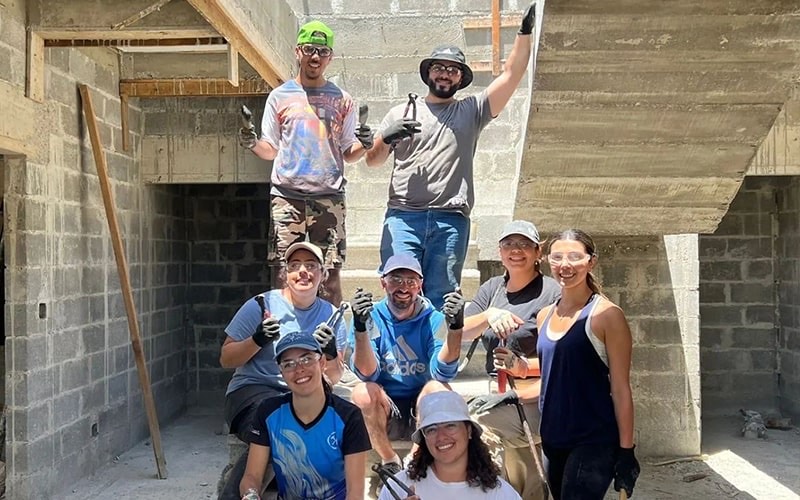
Looking for an engaging and rewarding career that involves supporting students in their educational journeys? The educational assistant job description might just be the perfect fit for you. As an educational assistant, you will have the opportunity to work closely with teachers and students, providing valuable assistance in classrooms and beyond. This role requires patience, dedication, and a passion for helping others succeed. If you’re ready to make a positive impact in the lives of students, read on to learn more about what it takes to excel as an educational assistant.
Educational Assistant Job Description
An educational assistant plays a crucial role in supporting teachers and students in a school or educational setting. This multifaceted position involves a variety of responsibilities that contribute to the overall functioning of the classroom and the academic success of students. If you’re considering a career as an educational assistant, it’s essential to understand the job description in detail.
Overview of Educational Assistant Role
Education assistants, also known as teacher assistants or instructional aides, work under the supervision of teachers to provide additional support to students. Their primary goal is to enhance the learning experience and help students succeed academically. Educational assistants work in various educational settings, including elementary schools, high schools, and special education programs.
Here are some key aspects of the educational assistant role:
- Supporting teachers in implementing lesson plans
- Assisting students with assignments and projects
- Providing one-on-one or small group instruction
- Helping students with special needs or learning disabilities
- Supervising students in the classroom and during activities
Responsibilities of an Educational Assistant
As an educational assistant, you will have a diverse range of responsibilities that contribute to the smooth operation of the classroom and the academic progress of students. Some of the typical duties of an educational assistant include:
- Assisting the teacher in preparing instructional materials
- Supporting individual students with their learning needs
- Monitoring student progress and behavior
- Supervising students during class and activities
- Providing feedback to teachers on student performance
- Assisting in the implementation of behavior management strategies
- Helping to create a positive and inclusive learning environment
- Collaborating with teachers and other staff members
Qualifications and Skills Required
While specific requirements may vary depending on the educational institution and the level of the position, there are some common qualifications and skills that are typically required for an educational assistant role. These may include:
- High school diploma or equivalent
- Experience working with children or in an educational setting
- Strong communication and interpersonal skills
- Patience and empathy when working with students
- Ability to follow directions and work independently
- Knowledge of basic educational principles and practices
- Ability to multitask and prioritize tasks effectively
- Flexibility and adaptability in a fast-paced environment
Training and Certification
While formal education requirements for educational assistants may vary, some institutions may prefer candidates with an associate degree or certification in educational assistance. Additionally, specific training in areas such as special education, behavior management, and child development can be beneficial for enhancing job performance.
Many educational assistants receive on-the-job training and professional development opportunities to enhance their skills and knowledge. Some educational assistants may also be required to maintain CPR and first aid certification.
Work Environment
Education assistants typically work in a school setting, assisting teachers in classrooms or specialized programs. The work environment can vary depending on the specific role and the needs of the students. Educational assistants may work with students of all ages, from kindergarten to high school, and may support general education classrooms or special education programs.
Education assistants may work full-time or part-time hours, depending on the needs of the school and the position. Some educational assistants may work on a temporary or seasonal basis, while others may have year-round positions.
Career Outlook and Advancement Opportunities
The demand for educational assistants is expected to grow in the coming years, driven by an increasing focus on inclusive education and the need for additional support for students with diverse learning needs. Educational assistants who demonstrate strong skills and dedication to their work may have opportunities for career advancement, such as becoming a lead educational assistant or pursuing further education in the field of education.
Overall, a career as an educational assistant can be rewarding and fulfilling for those who are passionate about helping students succeed academically and supporting teachers in their important work.
TEACHING ASSISTANT Interview Questions and Answers – How To PASS a TEACHER Interview!
Frequently Asked Questions
What are the primary responsibilities of an educational assistant?
An educational assistant typically supports teachers in various tasks such as preparing educational materials, supervising students, providing one-on-one assistance, and helping with administrative duties.
What qualifications are usually required for an educational assistant role?
Qualifications for an educational assistant position may include a high school diploma, relevant experience working with students, good communication skills, patience, and the ability to work well in a team environment.
How does an educational assistant contribute to the classroom environment?
Educational assistants play a crucial role in creating a positive and supportive classroom environment by assisting students with their learning, supporting the teacher in classroom management, and providing individualized attention to students who need extra help.
What are some key skills that an educational assistant should possess?
Key skills for an educational assistant include communication skills, patience, flexibility, organizational skills, empathy, the ability to follow instructions, and a genuine interest in supporting students’ learning and development.
Can an educational assistant help with students’ behavioral issues?
Yes, educational assistants can assist teachers in managing students’ behavioral issues by implementing behavior management strategies, providing positive reinforcement, and offering support to students who may be struggling with behavioral challenges.
How does collaboration with teachers benefit the work of an educational assistant?
Collaboration with teachers allows educational assistants to align their support efforts with the overall goals of the classroom, gain insights into effective teaching strategies, and ensure that students receive consistent and coordinated assistance to enhance their learning experience.
Final Thoughts
In conclusion, the educational assistant job description involves providing support to students and teachers in various academic settings. An educational assistant assists with classroom activities, helps students with assignments, and supports their learning needs. **Educational assistant job description** includes tasks such as preparing materials, supervising students, and implementing educational plans. This role requires patience, strong communication skills, and a passion for helping others succeed. Becoming an educational assistant can be a rewarding career path for those interested in making a positive impact on students’ academic journeys.





